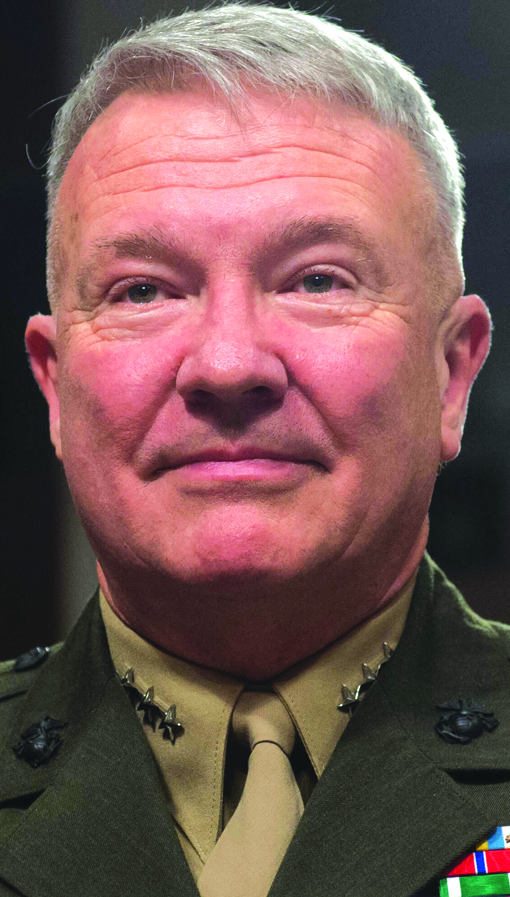November 27, 2020

American efforts to deter Iran from actions against US forces is largely working, says Marine Gen. Frank McKenzie, who heads US Central Command.
He made that judgment November 19, two days after rockets struck Baghdad’s high security Green Zone, with one landing inside the US embassy compound.
“I believe the Iranian regime recognizes if they get into an escalatory spiral with the United States, it will not end well for them,” he said in a prepared speech. “So that’s why we’ve seen a recent decline in these tensions at sea, and attacks against us in Iraq and other places.”
But while things may seem like they’ve returned to normal, he said, Iran will continue to seek ways to undermine the US, whether through overt attacks or other initiatives.
Tensions reached a fever pitch in January, when the US assassinated Maj. Gen. Qasem Soleymani, who the US says was responsible for numerous attacks on US troops in Iraq.
Since Soleymani’s death, McKenzie said, attacks have been less numerous and aggressive maneuvers by the Pasdaran in the Persian Gulf have stopped.
“Today, I believe Iran has been largely deterred, because the regime now understands we possess both the capability and the will to respond,” McKenzie said. He did not say if he thought the Islamic Republic would still feel deterred after President-elect Joe Biden takes office.
McKenzie attributed the drop in attacks to Soleymani’s killing.
Of the Iraqi government’s decision not to expel US troops after the assassination, McKenzie said, “The government of Iraq has clearly indicated it wants to maintain its partnership with the United States and coalition forces as we continue to finish the fight against the Islamic State.”
The United Nations estimates that there are as many as 10,000 Islamic State fighters still living in Iraq and Syria, with the ability to carry out attacks, even if they no longer control land.
At the same time, President Trump recently ordered further troop reductions in Iraq, taking the number down from 3,000 today to 2,500 by January 15, five days before Trump leaves office.
Iraqi Foreign Minister Fuad Hussein told The Associated Press November 18 that Iraqi combat operations against the Islamic State would end following that drawdown, though he acknowledged that plans may change after Biden takes office.
